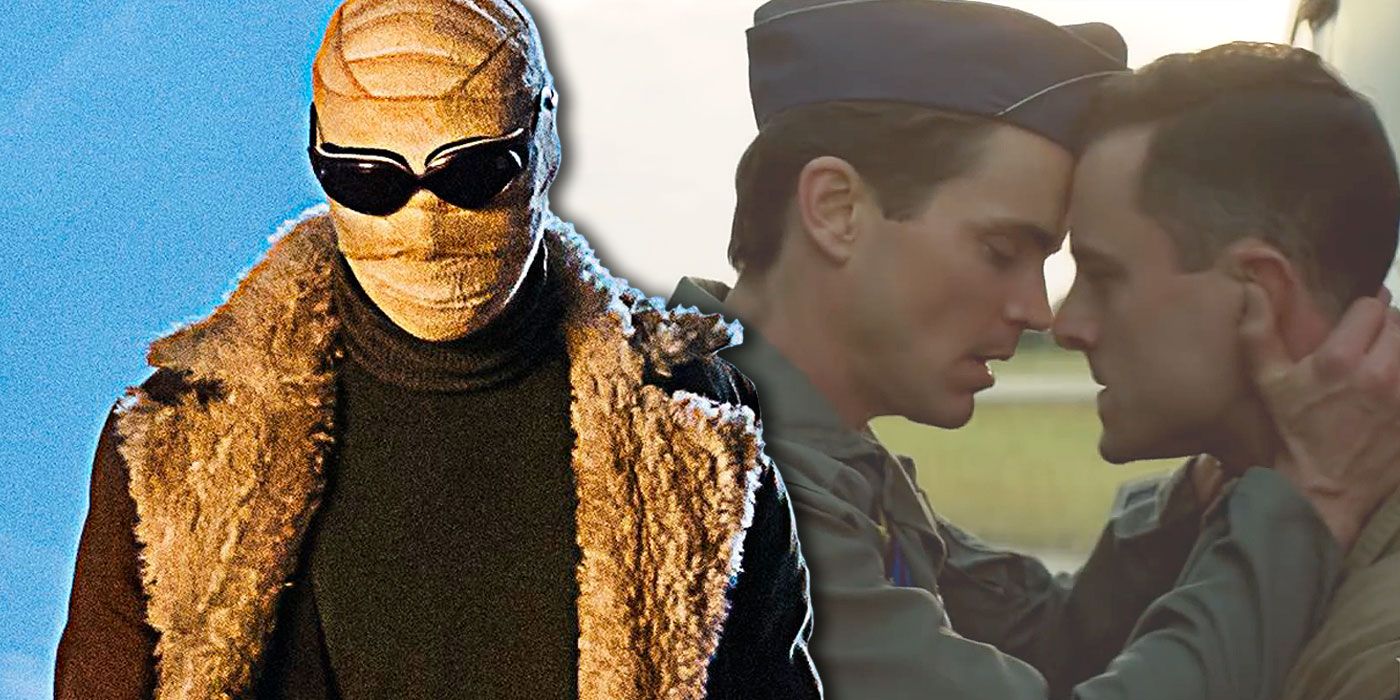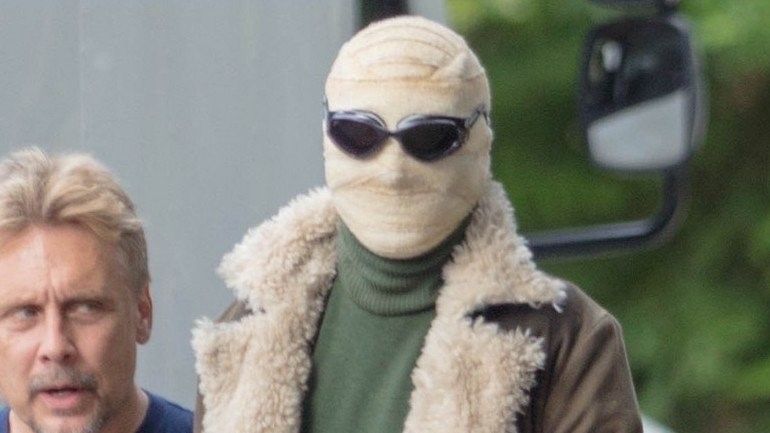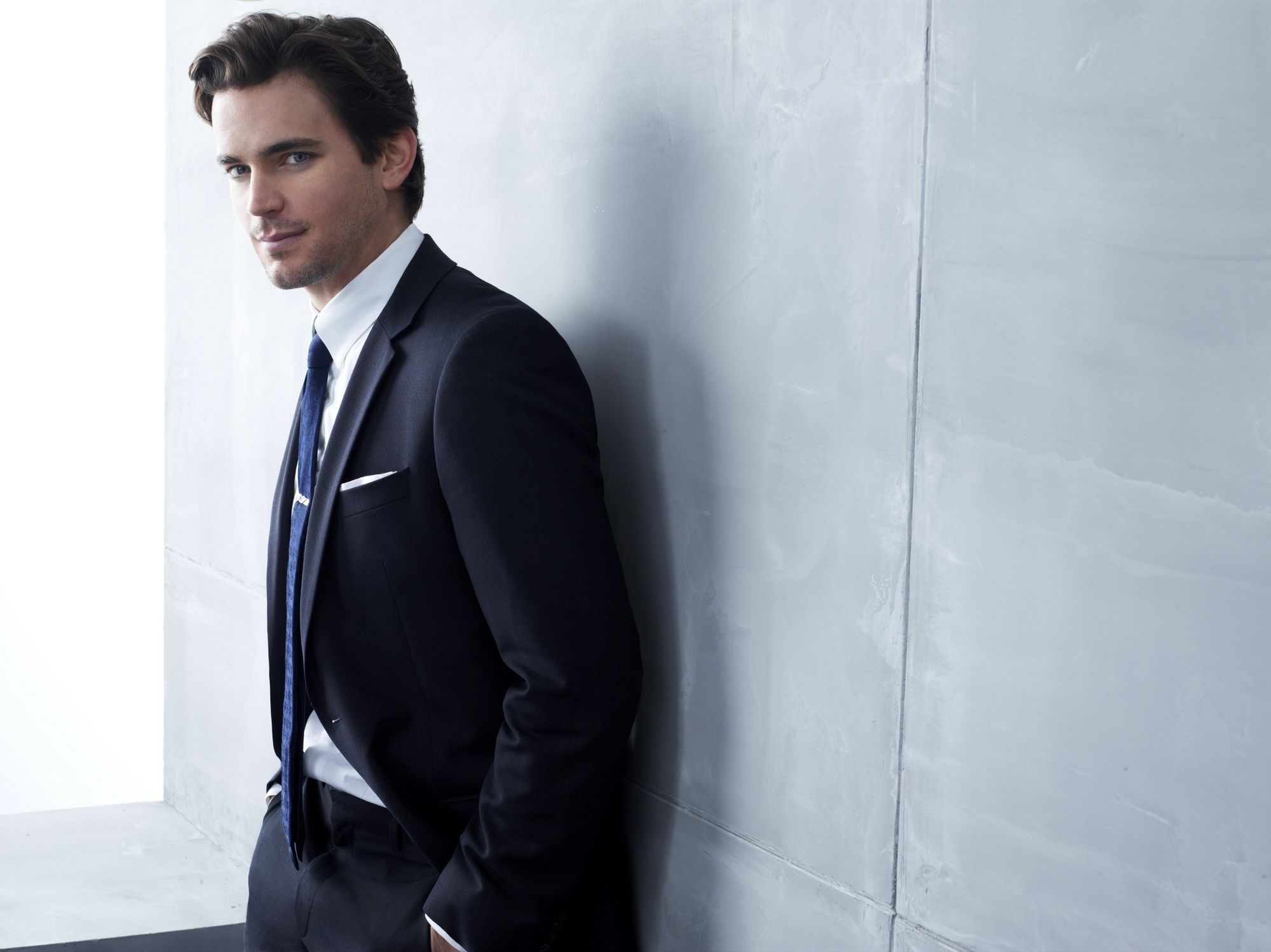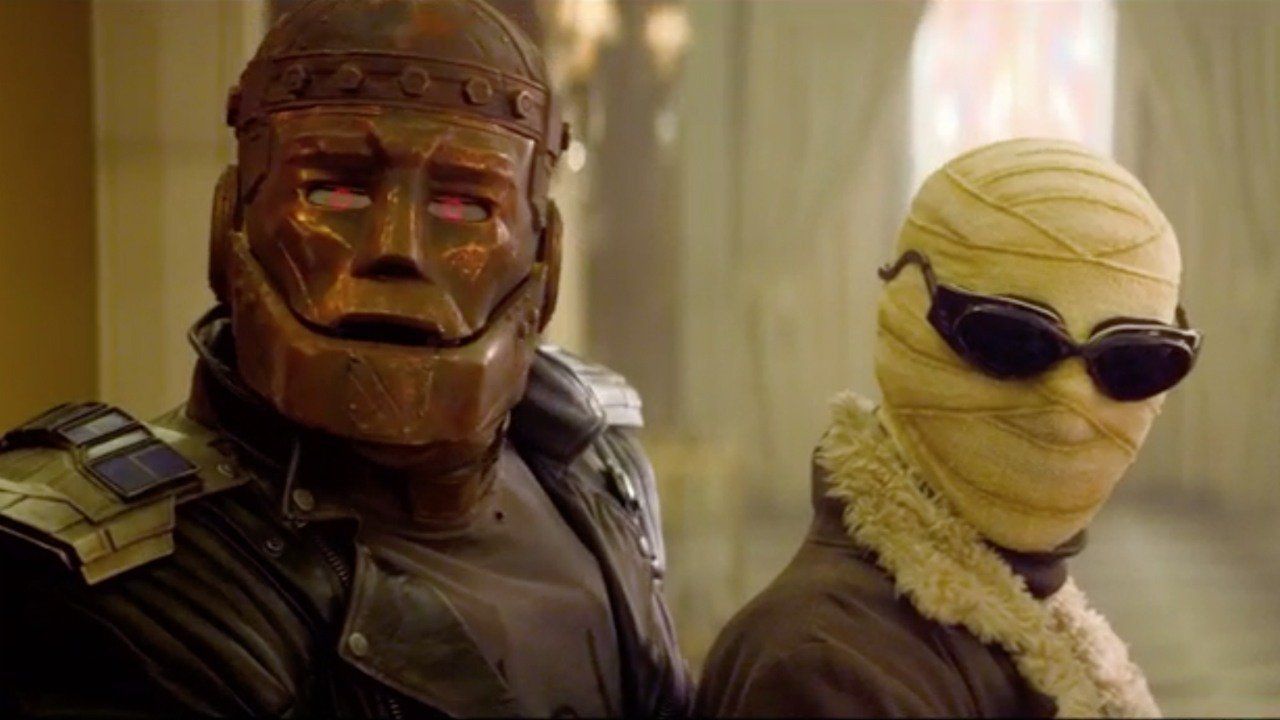Some of the most intriguing tweaks to Doom Patrol are the changes the producers of the DC Universe streaming series have made to star Matt Bomer's character Larry Trainor, aka Negative Man. While he still retains elements of his canon comics origin (he's a pilot, fused with an otherworldly being, and wears bandages all the time), his backstory has been radically altered, resulting in a more well-rounded and complex character.
Part of that process included reinventing the reluctant hero as gay, and in a secret relationship with another man at the time of his accident. That hidden aspect of himself informs much of Negative Man's character and growth in the series, while also making him one a small but growing number of male gay superheroes to appear on television. During a Q&A in Los Angeles, Bomer opened up about playing the character, and what it means to him.
RELATED: Doom Patrol Makes a Major Change to DC's Negative Man
As an openly gay actor, Bomer says he finds the changes to be some of the most intriguing aspects of the character. "I think it's so important," he says of Trainor's background. "I think it's a big reason why I wanted to be a part of Doom Patrol, 'cause I'd never really seen a gay male superhero.
"What I love most about the character is that even though it's a huge struggle internally for him, it's not the sole thing that defines him," the actor continued. "He's such a multi-faceted character. If it had just been one stereotypical thing, I think I would have had more reservations about it. But the fact that he's this nuanced character, who has so many places to grow and has so much shadow and so much light that he doesn't even know he has -- that's what appealed to me just as much as his sexuality."
RELATED: Brendan Fraser's Robotman Is the Heart (Technically Brain) of Doom Patrol
Bomer believes it's not just his past television roles that got him attention for the part. "Interestingly enough, I think one of the reasons they called me was because I was doing The Boys in the Band on Broadway, which [takes] place in 1968, 1969, in a time where even if people were accepting of who they were, they had to do it behind closed doors. Where the bar you were in could be raided. You were certainly ostracized by the mainstream community. It wasn't like it is today.
"I was in that head-space, and [executive producer Greg Berlanti] had come and seen the play... so I think he knew that I had really been delving into that world eight times a week on stage. But for Larry, the stakes are even higher. It's one thing to just be a product of that time, but to also be in the military and serving actively, to be someone who is trying to achieve so much in order to create a smokescreen for himself and to give himself permission just to be. I think in his mind, if he can just become this guy who breaks the sound barrier and America has to love, he'll never have to really deal with the parts of himself that are unlovable."
RELATED: Doom Patrol: Cyborg & Robotman Are the Dynamic Duo We Need
Asked how Larry deals with his differing desires and his affair with a fellow (male) member of the United States Air Force during an era where homosexuality was not accepted, Bomer explained, "I think he really compartmentalizes. He really wanted his cake and to eat it to. I think it's really profoundly important that he keeps his wife and his family, not only because he has this primal love and need for them, but also because they secure his status and his place in the military. But he also obviously really, really loves John, maybe the only true romantic connection he's ever had. He wants them both and can only have them if he really compartmentalizes them.
"He really doesn't realize a lot of that until it's too late and they're both gone," he continued. "He's had, you know, fifty years to let all these feelings marinate. He still hasn't been able to deal with himself. He has to create hobbies around himself like gardening. He's still a wallflower after all this time, so the impetus of the pilot and the circumstances of it have forced him into action, and he has to actively start dealing with himself, and it just continues to grow over the course of the season. There's an episode [around 10 or 11] where it all really starts to come to a head for him, and he really starts to get in touch with who he is on the inside."
RELATED: Doom Patrol: Cyborg & Robotman Are the Dynamic Duo We Need
Streaming now on DC Universe, Doom Patrol stars Brendan Fraser as Cliff Steele, Matt Bomer as Larry Trainor, Diana Guerrero as Crazy Jane, Alan Tudyk as Mr. Nobody, April Bowlby as Rita Farr, Joivan Wade as Vic Stone and Timothy Dalton as Niles Caulder. New episodes debut each Friday on the premium streaming service.




